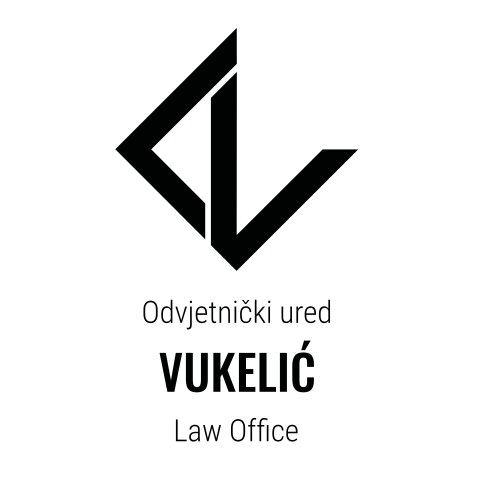Best General Litigation Lawyers in Croatia
Share your needs with us, get contacted by law firms.
Free. Takes 2 min.
Or refine your search by selecting a city:
List of the best lawyers in Croatia
About Litigation Law in Croatia
Litigation law in Croatia is rooted in the country's civil law system, which is influenced by European legal standards and traditions. It involves resolving disputes through courts of law, where a legal representative, or lawyer, plays a pivotal role in advocating for the interests of the party they represent. Croatian courts handle a wide array of litigation cases, ranging from civil, commercial, and administrative to more specialized fields such as intellectual property and labor disputes.
Why You May Need a Lawyer
There are several common situations where you might require legal help in litigation. These include commercial disputes between businesses, contract disputes, property disagreements, labor and employment issues, family law matters such as divorce and custody cases, tort claims like personal injury cases, and administrative law problems including challenging governmental decisions. Legal systems can be complex, and having a qualified lawyer can help you navigate the litigation process effectively, present your case persuasively, and comply with all procedural requirements.
Local Laws Overview
The litigation process in Croatia is governed primarily by the Civil Procedure Act and other relevant statutes depending on the case type, such as the Commercial Code for business-related disputes. The Croatian judiciary system comprises municipal courts, county courts, and the Supreme Court, with specialized courts for commercial, administrative, and misdemeanor cases. The initial step in most litigation is the filing of a lawsuit followed by a series of procedural steps, including hearings, evidence presentation, and then judgment. The Croatian legal system also encourages alternative dispute resolution (ADR) methods, such as mediation and arbitration, as efficient means to resolve disputes outside of court.
Frequently Asked Questions
What is the first step in initiating litigation in Croatia?
The first step is to file a formal complaint or lawsuit with the appropriate court. This document outlines the factual and legal basis of your claim against the opposing party.
Do I need a lawyer to represent me in Croatian courts?
While individuals can represent themselves, it is highly recommended to hire a lawyer due to the complexity of legal procedures and the need for specialized legal knowledge.
How long does litigation typically take in Croatia?
The duration can vary significantly based on the complexity of the case, the court's schedule, and the willingness of both parties to proceed efficiently. Some cases may be resolved in months, while others might take years.
Can a litigation decision be appealed?
Yes, most decisions can be appealed to a higher court if a party believes there has been a legal error. The appeal process involves submitting a detailed argument for review by a superior court.
What are the costs involved in litigation?
Costs can include court fees, legal representation fees, and any other expenses related to gathering evidence or expert testimonies. It's essential to discuss cost expectations with your lawyer upfront.
Is alternative dispute resolution available in Croatia?
Yes, ADR methods like mediation and arbitration are available and in some cases encouraged, as they can be more cost-effective and quicker than traditional litigation.
Are court proceedings in Croatia public?
Generally, court proceedings are public, but there are exceptions, especially in cases involving minors or sensitive information, where proceedings may be closed to the public.
What happens if I lose a litigation case?
If you lose, you might be required to pay the legal costs of the other party. Additionally, you will have to comply with the court's judgment unless you decide to appeal.
How is evidence presented in court?
Evidence is presented through documentary submissions, witness testimonies, and expert reports. The judge assesses the relevance and credibility of the evidence during the proceedings.
What role does the judge play in Croatian litigation?
In Croatia, judges play an active role in managing the case's progress, examining evidence, and making decisions based on the presented facts and applicable law.
Additional Resources
For more information and assistance, you may reach out to the Croatian Bar Association, local court offices, and legal aid services. The Ministry of Justice of the Republic of Croatia also offers resources and guidance regarding legal procedures.
Next Steps
If you find yourself in need of legal assistance with litigation in Croatia, start by consulting a qualified litigation lawyer who is well-versed in Croatian law. They can provide you with personalized guidance based on the specifics of your situation. Secure an initial consultation to discuss your case, understand the potential outcomes, and plan your legal strategy effectively.
Lawzana helps you find the best lawyers and law firms in Croatia through a curated and pre-screened list of qualified legal professionals. Our platform offers rankings and detailed profiles of attorneys and law firms, allowing you to compare based on practice areas, including General Litigation, experience, and client feedback.
Each profile includes a description of the firm's areas of practice, client reviews, team members and partners, year of establishment, spoken languages, office locations, contact information, social media presence, and any published articles or resources. Most firms on our platform speak English and are experienced in both local and international legal matters.
Get a quote from top-rated law firms in Croatia — quickly, securely, and without unnecessary hassle.
Disclaimer:
The information provided on this page is for general informational purposes only and does not constitute legal advice. While we strive to ensure the accuracy and relevance of the content, legal information may change over time, and interpretations of the law can vary. You should always consult with a qualified legal professional for advice specific to your situation.
We disclaim all liability for actions taken or not taken based on the content of this page. If you believe any information is incorrect or outdated, please contact us, and we will review and update it where appropriate.
Browse general litigation law firms by city in Croatia
Refine your search by selecting a city.

















